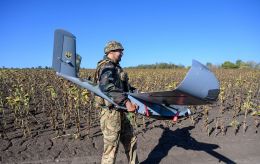NATO under Trump's pressure: Can 5% defense spending save alliance and Ukraine's aid
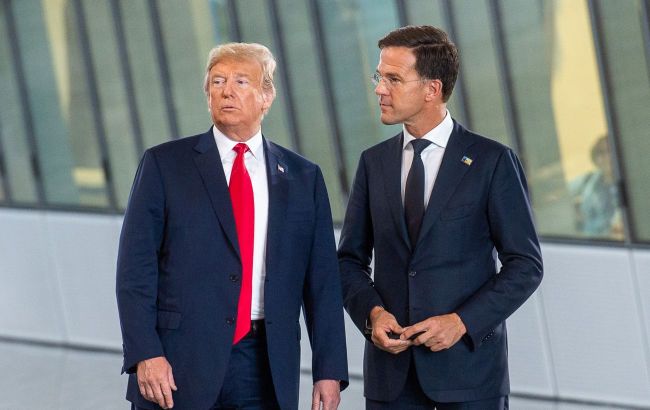 US President Donald Trump and NATO Secretary General Mark Rutte (photo: flickr.com/whitehouse45)
US President Donald Trump and NATO Secretary General Mark Rutte (photo: flickr.com/whitehouse45)
Will the results of the NATO summit in the Hague be beneficial for Ukraine, how will a second Trump presidency impact the Alliance, and whether allied countries will agree to raise defense spending to 5% of GDP? Read the RBC-Ukraine report.
Key questions:
- Why NATO changed the format of the summit in the Hague?
- Will the allies comply with Trump's demand?
- What should Ukraine expect from the Hague summit?
- Can Europe deter Russia without the US?
Today, June 24, the annual 76th NATO summit begins in the Dutch city of The Hague. Usually, these summits focus on urgent geopolitical issues and challenges, developing plans and strategies for the near future, as well as adopting decisions that influence global security.
In recent years, the central topic of each summit (for obvious reasons) has also been Russia's full-scale war against Ukraine. For instance, at the 2023 summit in Vilnius, NATO leaders agreed that Ukraine no longer needs to follow the Membership Action Plan (MAP), which was previously considered a mandatory step for joining the Alliance. The following year in Washington, Ukraine was assured that its path to NATO is irreversible.
However, the summit in The Hague will be completely different. It is expected to be the shortest and most "delicate" in recent years, as it will mainly address internal issues. Topics such as Russia's war against Ukraine or the conflict between Israel and Iran will be practically absent from the agenda. The reason for this is the irritating and explosive nature of US President Donald Trump.
Trump's factor
The NATO summit in The Hague will be a real test for Secretary General Mark Rutte, who took office in October last year. Before this, Rutte participated in summits as the Head of the Dutch government, but now he bears responsibility for how the meeting will proceed in his hometown.
As noted by The New York Times diplomatic correspondent Steven Erlanger, who has covered NATO summits for many years, there are two things that could complicate Rutte's job. The first is Trump, who has differences with allies regarding Ukraine. The second is Ukraine itself, which wants to join NATO - something Trump opposes. Therefore, the issue of Ukraine will not be part of the main leaders' meeting agenda.
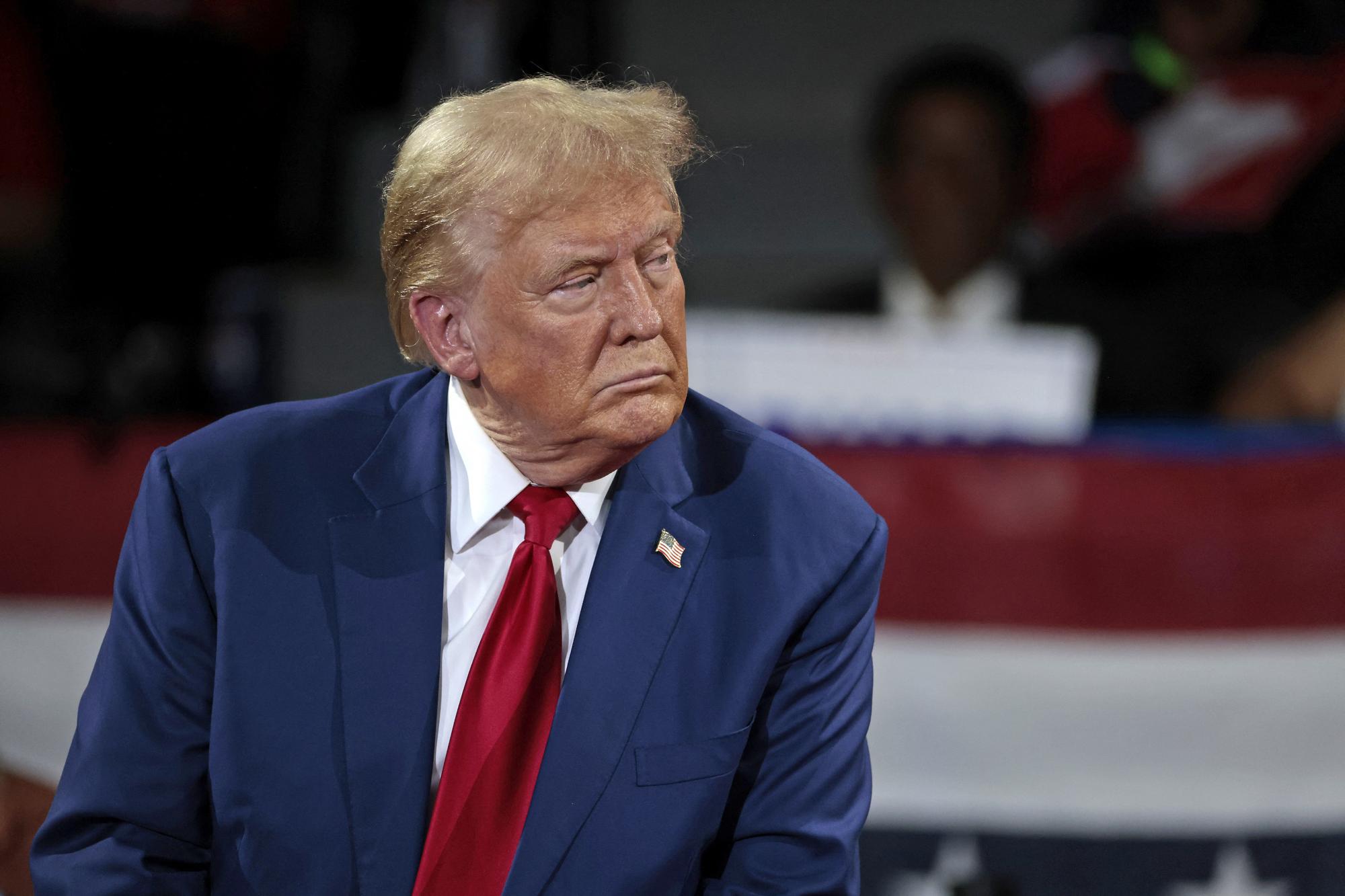 NATO summit significantly shortened due to Trump (photo: Getty Images)
NATO summit significantly shortened due to Trump (photo: Getty Images)
The main topic in The Hague will be increasing defense spending by allied countries, something the US President has consistently demanded. The summit itself will be significantly shortened to allow for quick decisions and to avoid irritating Trump.
The summit communiqué will consist of five paragraphs on a single A4 page. By comparison, last year's communiqué was 44 paragraphs long. This year's document, according to The Times, will outline target levels for defense spending.
Clearly, Rutte wants to avoid a repeat of the 2018 Brussels summit, when a tense exchange between Secretary General Jens Stoltenberg and Trump escalated into threats to withdraw the US from NATO if Europeans didn't spend more on defense. A repeat of those events, despite Rutte's efforts, remains a real possibility.
Just like in 2018, Trump's main demand for NATO allies is to raise defense spending - this time to 5% of GDP. Most NATO countries are unwilling to meet this demand, as it's too costly. However, Rutte managed to find a compromise.
Will NATO agree to Trump’s 5%?
"This NATO summit in The Hague can be described as the '5% summit.' That is, everything - from the US President's involvement to the final declaration - is tied to fulfilling the Trump administration's demand to commit allies to raise their defense spending to 5% of GDP. Even though only 23 out of 32 countries have reached the previous 2% goal, set more than a decade ago at the Wales summit," said Head of Ukraine's Mission to NATO, Aliona Hetmanchuk, in a comment to RBC-Ukraine.
Rutte's plan is to split the 5% target into two parts - 3.5% for direct defense expenditures and 1.5% for broader defense investments (logistics, infrastructure, cybersecurity, etc.). But just days before the summit, Rutte faced a serious obstacle: Spain opposed raising defense spending, calling the 5% goal unreasonable and counterproductive, according to Bloomberg.
Indeed, not all countries agreed with Rutte's idea. For instance, Italy and Belgium wanted to delay the target until 2035. But only Spain directly opposed the increase. However, on Sunday, June 22, a consensus was reportedly reached among all 32 NATO countries regarding the spending increase.
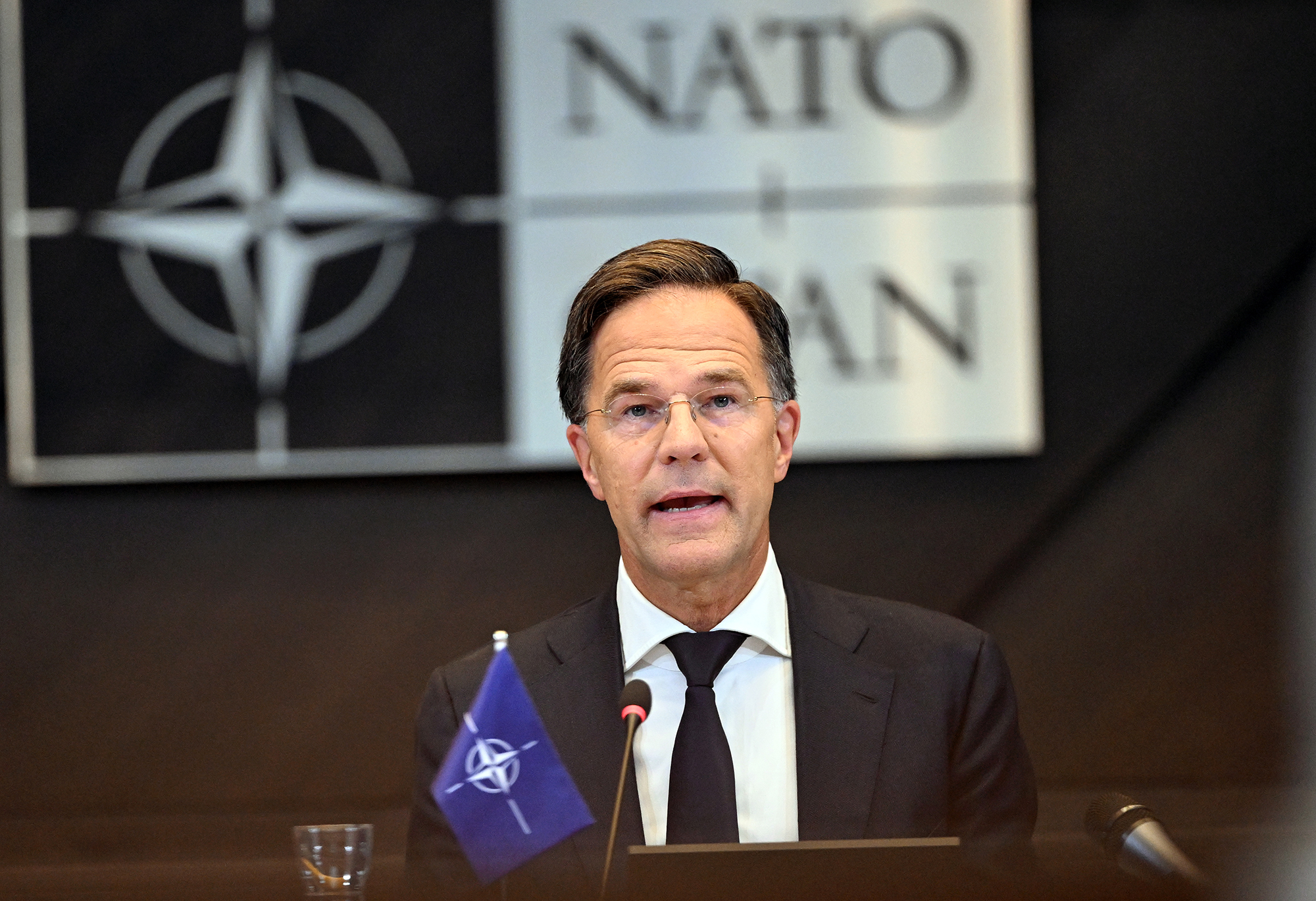 Rutte found a compromise on increasing NATO defense spending (photo: Getty Images)
Rutte found a compromise on increasing NATO defense spending (photo: Getty Images)
According to Reuters, all allies agreed on the text of a joint communiqué that allows Spain not to raise its spending to 5% and sets the deadline for reaching the target at 2035. The final decision will be made by the leaders during the summit.
Still, according to Ukrainian political analyst Volodymyr Fesenko, even if this decision is made, Trump might later say he's no longer interested in defending Europe or in US membership in NATO. Or he could send Europe a bill for the presence of American troops on the continent.
"That's quite likely - it's very much in Trump's style to make Europeans pay. Then, maybe they'll try to count payments for US troops in Europe, American weapons deployment, satellite intelligence, and so on, toward that 5%. That scenario is possible," Fesenko suggested.
According to the analyst, Trump has long lost interest in NATO, and without the US, the powerful international alliance could be deprived of its strength. So now, Rutte is essentially fighting for NATO's survival - to keep the US in the Alliance.
"The main goal is to preserve NATO. That's why compromises are being made. Will they help or not - it's hard to say now. But I'm convinced NATO will transform," Fesenko added.
Ukraine at NATO summit
The summit in The Hague will also be different for Ukraine compared to previous NATO gatherings. For the first time since the start of Russia's full-scale invasion, the Ukrainian President is not expected to take part in the main session of the summit - neither in person nor virtually. According to Western media, Rutte made this decision to avoid a situation where Zelenskyy and Trump would be in the same room, as the Secretary General doesn't want a repeat of their Oval Office argument.
Instead, Zelenskyy was invited to the official dinner hosted by the King of the Netherlands for world leaders. Trump is also expected to attend the dinner, but it's unclear whether an official meeting between the two Presidents will take place. Zelenskyy will likely also attend a defense industry forum held on the sidelines of the summit.
There will probably be no announcements regarding military, financial, or other types of assistance to Ukraine, nor promises about future membership, as there have been in previous years. However, if NATO countries agree to Rutte's spending proposal, it will be important news for Ukraine, both indirectly and directly, noted Hetmanchuk.
"Indirectly, because the 5% is about strengthening the defense capabilities of NATO's European members, and therefore increasing the capacity to deter Russia on the continent. Directly, because allocating 5% to defense and security means allies will have more opportunities to support Ukraine within this new defense framework. Our task is to ensure this is properly reflected in the summit's decisions," the Head of Ukraine's Mission to NATO explained.
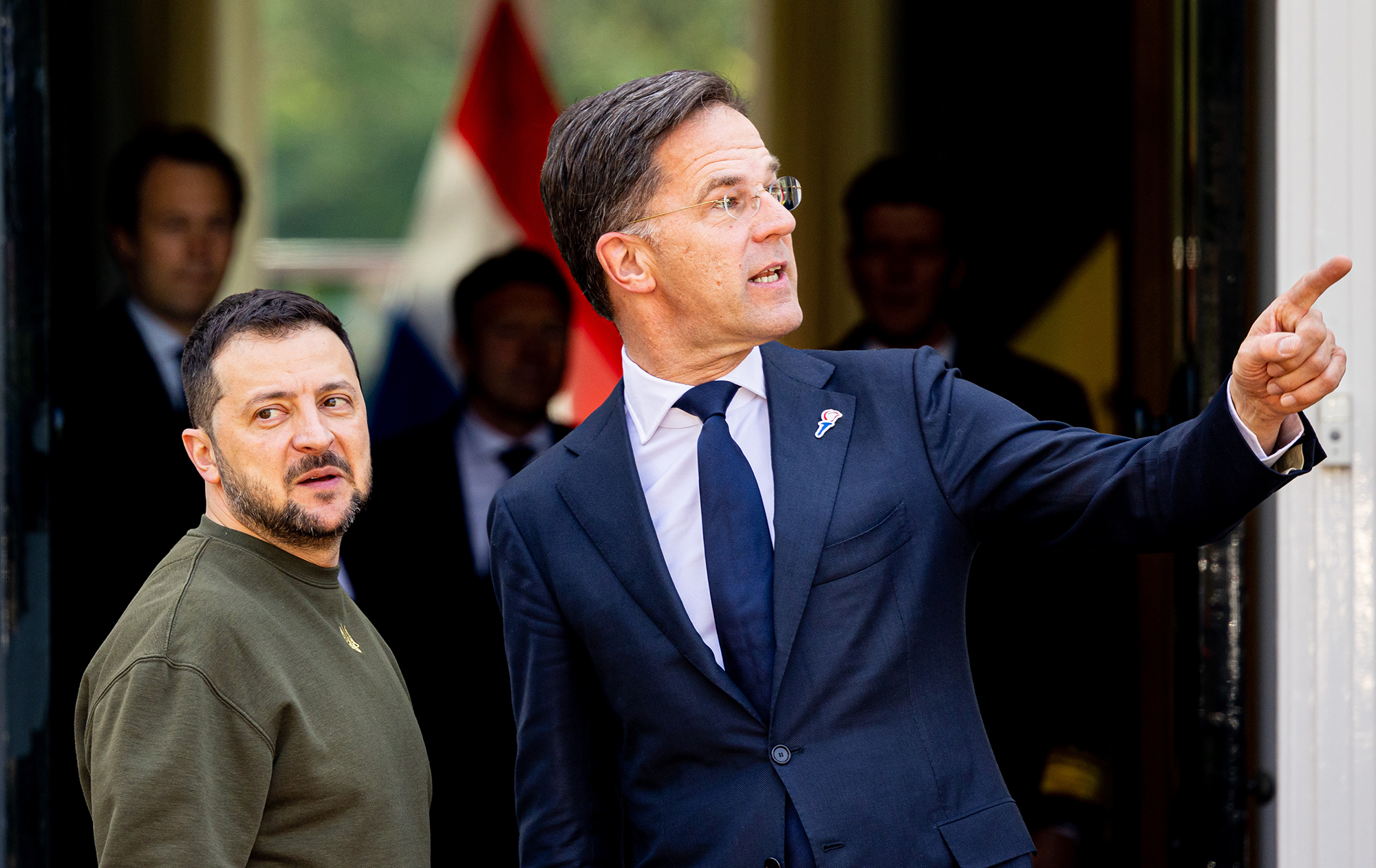 Zelenskyy will not participate in the NATO leaders’ meeting (photo: Getty Images)
Zelenskyy will not participate in the NATO leaders’ meeting (photo: Getty Images)
As Rutte has stated, the wording of the NATO leaders' joint communiqué will include support for Ukraine, along with the agreement to raise defense spending to 5%. However, from the Secretary General's remarks, it was unclear whether support for Ukraine would be mentioned explicitly in the final NATO statement or only implied through the increased defense spending.
At the same time, according to Hetmanchuk, it's important to understand that this NATO summit is primarily for allies, not partners.
"In this sense, the very fact that the Ukrainian President was invited is significant. But beyond the invitation, there should be formats worthy of the geopolitical moment - formats that, on one hand, emphasize NATO members' commitment to supporting our defense capabilities and industries up to and beyond the 5% target date, and on the other, highlight Ukraine's role as a key contributor to Euro-Atlantic security, not just a victim of aggression," Head of Ukraine's Mission to NATO added.
Most importantly, as Hetmanchuk noted in a comment to RBC-Ukraine, this summit cannot be evaluated by the same criteria as previous NATO summits. A different logic must apply here. For example, she said, the absence of certain statements or decisions may actually be more beneficial than their presence.
Is European security possible without US?
Trump's return to the White House and his stance on NATO have once again reminded European countries that security in Europe must primarily rest on their own shoulders. Thus, increased defense spending, rearmament, and strengthening are in Europe's interest, especially given the US's growing focus on the Pacific region and declining interest in European security, noted Volodymyr Fesenko in a conversation with RBC-Ukraine.
Today, in his opinion, Europe cannot deter Russia on its own. Moscow has a nuclear advantage, and European countries do not fully possess strong air defense systems, satellite intelligence, or missile launch tracking systems. All of this is currently provided to Europe primarily by the United States.
"That's why this whole system needs to be built. Essentially, Europe must create a powerful military bloc within NATO. These could be conditionally autonomous European forces because right now, the American military contingent is the backbone. But to truly counter Russia, Europeans need to develop their own strategic offensive weapons and a modern, enhanced air defense system. So far, that doesn't exist. And it won't be built quickly," the Ukrainian analyst said.
Therefore, according to him, Europe's key task now is to save NATO under Trump by keeping the US in the Alliance. That's why the NATO Secretary General this year has to display extraordinary diplomatic flexibility. However, the Trump problem has already become central in many other areas - from global trade relations to the state of international organizations that once ensured Western unity and influence.
Sources: comments from Head of Ukraine's Mission to NATO Aliona Hetmanchuk and Chairman of the Board of the Center for Applied Political Studies PENTA Volodymyr Fesenko, as well as publications from Radio Liberty, The New York Times, Bloomberg, Euractiv, The Times, and Reuters.

